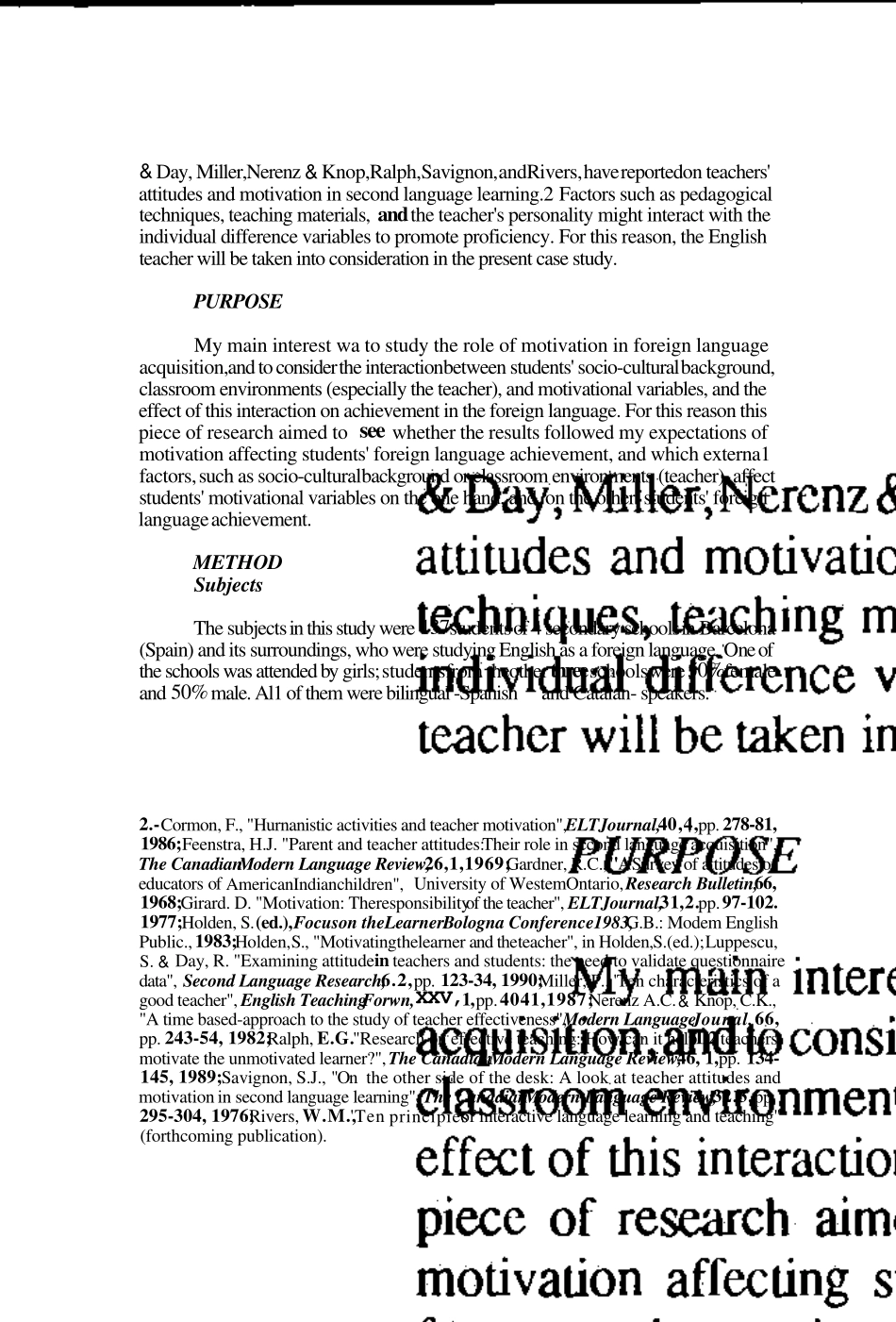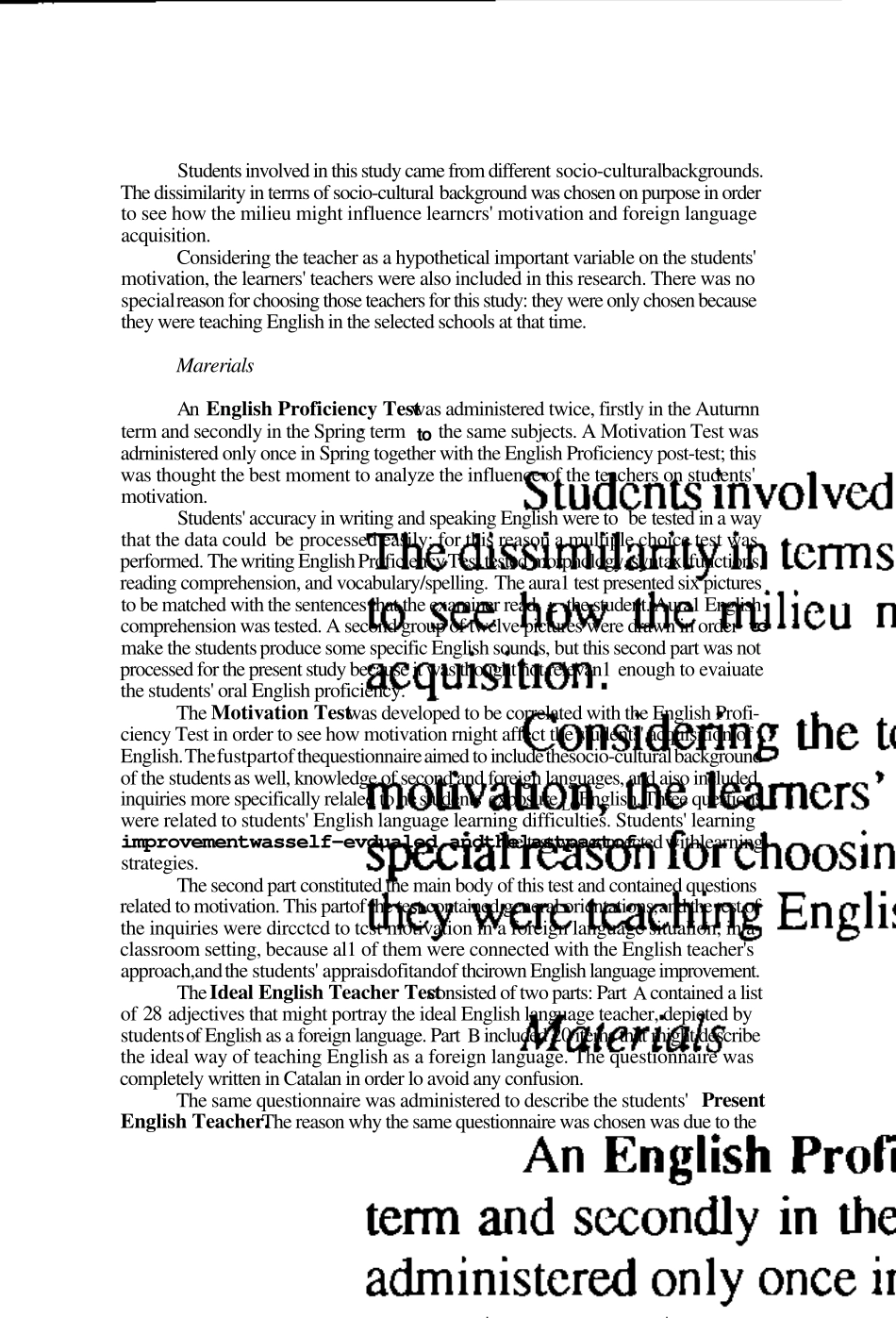THE ROLE OF MOTIVATION IN THE LEARNING OF ENGLISH AS A FOREIGN LANGUAGE Merck Bernaus This study investigates the role of motivation in foreign language learning and the factors that rnight affect learners' motivation. 137 secondary school students took part in the study. Correlations between the students' English proficiency and motivation were performed. Questionnaires on the ideal English teacher and the students' actual English teachers were also delivered. The purpose of correlating the ideal English teacher with the students' real English teachers was to investigate ifthis factor might d e c t student's motivation and consequen tly students' English projiciency. The results indicated that teachers affect students' motivation and that there exist signijicant correlations between motivation and foreign language learning. A considerable amount of research has been directed at investigating the influenceof student affective variables withrespect to both on secondforeign language acquisition and their interaction with cognitive variables. Among others, attitudinal and motivational variables in secondforeign language acquisition have been identified as relevant factors and as predictors of students' language achievement. Gardner and his colleagues are the pioneers in this field of research and the scholars who have analyzed most extensively motivation and its effects on second language acquisition.' Even though a considerable amount of research on student affective variables has been accomplished, to date, relatively little research has been carried out on the factors that might affect students' motivation, such as the teacher. Nevertheless, since the late 60s some scholars like Cormon, Feenstra, Gardner, Girard, Holden,...


